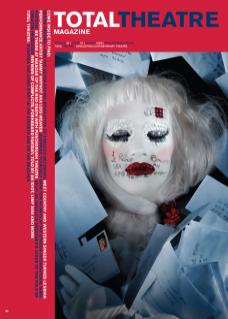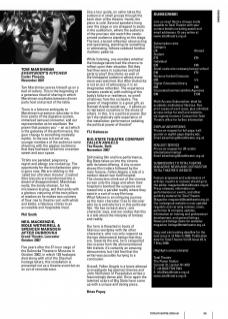Five years after the 57-hour siege of the Dubrovka Theatre in Moscow in October 2002, in which 129 hostages died along with all of the Chechen hostage takers, this installation is presented not as a theatre event but as an act of remembrance.
Like a tour guide, an usher takes the audience in small groups through the back door of the theatre. Inside, the place is cold. Several speakers hang over the stage or are strapped to seats in the auditorium, where the audience of the previous slot watch the newlyarrived audience standing on the stage. The text, a broad reflection about acting and spectating, standing for something or witnessing, follows subdued familiar rhythmic patterns.
While listening, one wonders whether the hostage takers had the chance to reflect upon their situation. Did they feel they were in costumes and had parts to play? One thinks as well of the kidnapped audience whose every move was watched. But After Dubrovka is not an act of witnessing: it is an imaginative reflection. The experience remains cerebral, with nothing of the body’s failure or resilience, no smell of latrines from the orchestra. The power of imagination is a great gift, as Hannah Arendt would say – it allows us to represent ourselves in the shoes of others. In this, it is a political power. But isn’t the relatively safe experience of this installation-performance sedating the political power of theatre?

